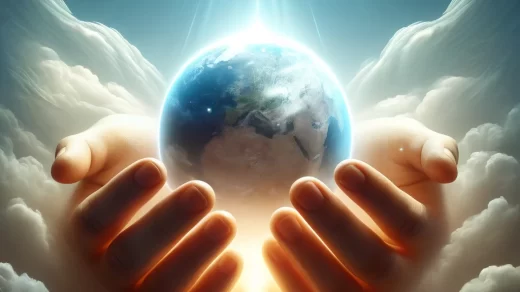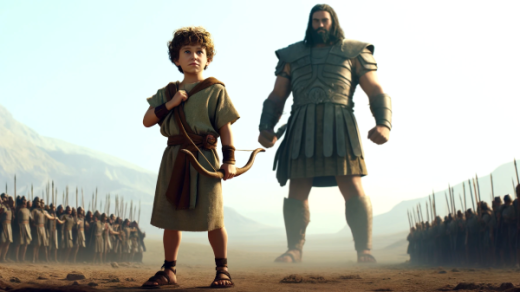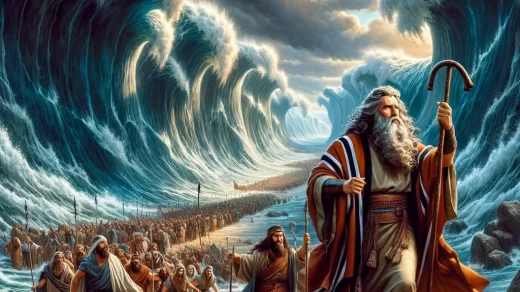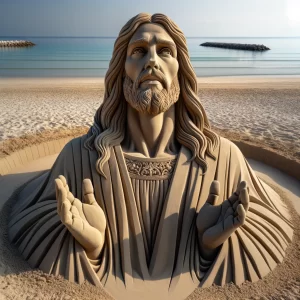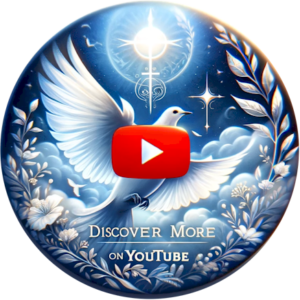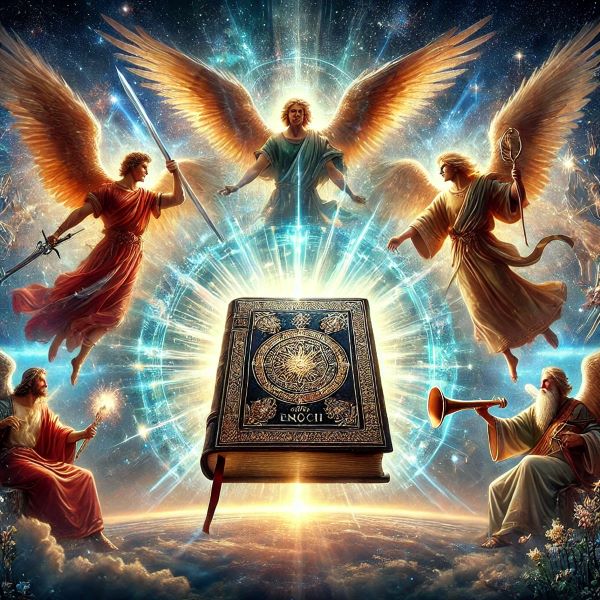
The Book of Enoch is an ancient religious text that has intrigued scholars, theologians, and historians for centuries. Though it is not included in the Jewish or Christian biblical canons, it holds significant cultural and spiritual value. This enigmatic book details the journeys and visions of Enoch, a revered patriarch, offering profound insights into the cosmos, angels, and fallen angels. Among the celestial beings mentioned in the Book of Enoch, four powerful angels—Michael, Raphael, Gabriel, and Uriel—stand out in various interpretations. This post delves into the origins of the Book of Enoch, explores the narratives of these formidable angels, and examines their roles and relationships within the text and broader spiritual contexts.
The Book of Enoch: Historical Context and Origins
The Book of Enoch, also known as 1 Enoch, is a collection of ancient writings attributed to Enoch, the great-grandfather of Noah. Scholars debate its origins, with estimates placing its composition between the 3rd century BC and the 1st century AD. The text was revered by early Jewish and Christian communities but eventually excluded from their canonical scriptures. Reasons for its exclusion vary, with some suggesting its controversial content and others citing doctrinal disagreements.
Despite its non-canonical status, the Book of Enoch has significantly influenced religious thought. It provides a unique perspective on divine and cosmic order, portraying Enoch’s heavenly journeys and interactions with angelic and fallen beings. Its vivid descriptions and profound themes have inspired a wealth of religious literature and theological discourse.
Enoch’s Journeys and Visions
Central to the Book of Enoch are the journeys and visions of Enoch himself. Enoch is depicted as a righteous man chosen by God to receive divine revelations. His journeys to the heavens reveal intricate details about the structure of the cosmos, the hierarchy of angels, and the fate of fallen angels.
Enoch’s visions encompass a wide array of supernatural and cosmological themes. He witnesses the grandeur of the celestial realms, the roles and duties of various angels, and the judgment awaiting the fallen ones. These visions serve not only as a testament to Enoch’s righteousness but also as a prophetic warning to humanity about the consequences of sin and disobedience.
The Powerful Angels in the Book of Enoch
The Book of Enoch mentions numerous angels, each with distinct roles and attributes. Among them, four angels are often highlighted for their extraordinary power and significance: Michael, Raphael, Gabriel, and Uriel. While interpretations vary, these angels are frequently portrayed as divine agents of justice, healing, communication, and illumination.
Michael: The Archangel
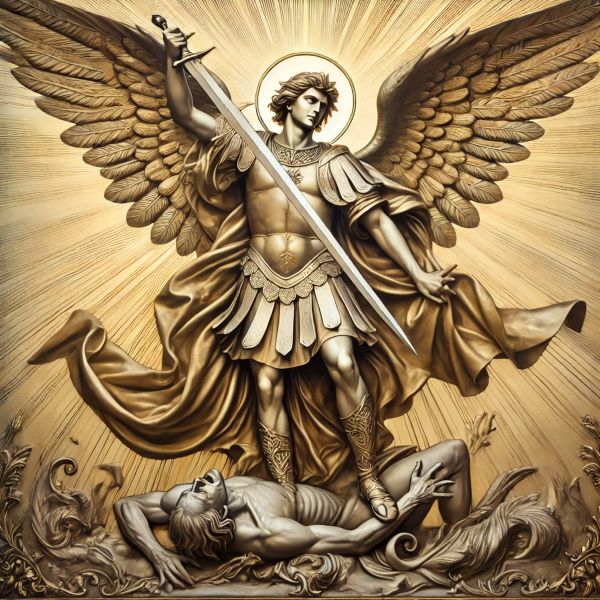
Michael is perhaps the most well-known of the four angels. Often referred to as the archangel, Michael is depicted as a mighty warrior and protector of God’s people. In the Book of Enoch, Michael’s role extends beyond that of a mere guardian. He is a chief angel who leads the heavenly hosts in the battle against the forces of darkness.
Michael’s significance is not limited to the Book of Enoch. He appears in various other religious texts, including the Bible, where he is portrayed as a key figure in the cosmic struggle between good and evil. His unwavering commitment to justice and righteousness makes him a revered figure in many religious traditions.
Raphael: The Healing Angel
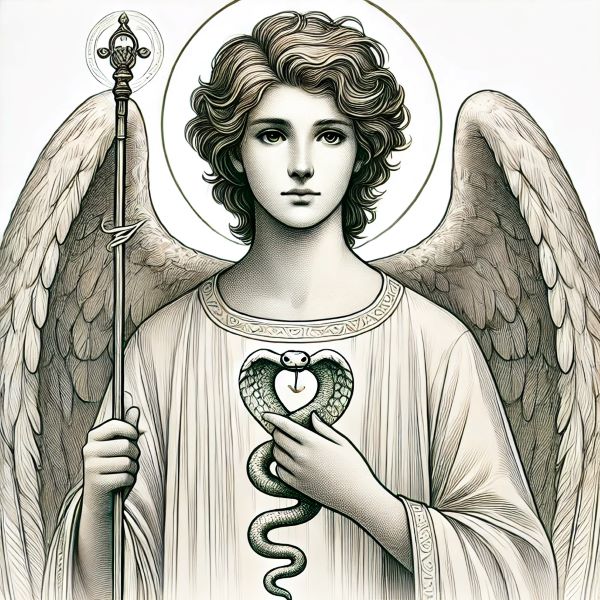
Raphael is known as the angel of healing and restoration. His name means “God heals,” reflecting his primary function. In the Book of Enoch, Raphael’s role involves not only healing the physical ailments of humanity but also guiding and protecting those in need.
Raphael’s compassionate nature and healing abilities are highlighted in several narratives, including his interactions with the fallen angels. He is often depicted as a benevolent figure who aids in the recovery and well-being of both humans and other celestial beings. His presence underscores the theme of divine mercy and intervention.
Gabriel: The Messenger Angel
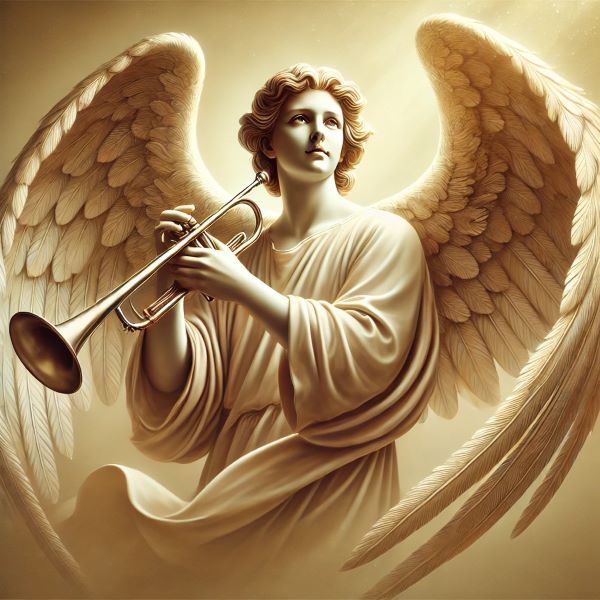
Gabriel is renowned as the angel of communication and revelation. His name means “God is my strength,” indicating his role as a divine messenger. In the Book of Enoch, Gabriel is responsible for conveying important messages from God to humanity and other angels.
Gabriel’s duties include delivering prophecies, announcing significant events, and guiding souls. He is a pivotal figure in various religious texts, including the Bible, where he plays a crucial role in the Annunciation to the Virgin Mary. Gabriel’s influence as a messenger underscores the importance of divine communication and guidance.
Uriel: The Light of God
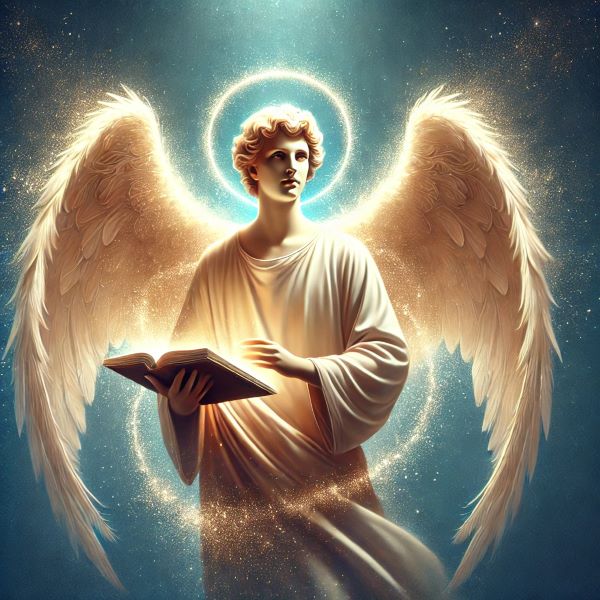
Uriel, whose name means “Light of God,” is often associated with wisdom and enlightenment. In the Book of Enoch, Uriel’s role involves illuminating divine mysteries and providing insight into God’s plans. He is depicted as a figure of great knowledge and understanding.
Uriel’s duties include revealing hidden truths, guiding Enoch on his heavenly journeys, and interpreting visions. His presence emphasizes the theme of divine illumination and the pursuit of spiritual wisdom. Uriel’s role as a light-bringer highlights the importance of knowledge and understanding in the spiritual realm.
The Relationship of These Angels with Satan
The relationship between these powerful angels and Satan varies across different interpretations of the Book of Enoch and other religious texts. While they are often seen as agents of God opposing the forces of darkness, their interactions with Satan are not always depicted as direct confrontations of dominance.
In some interpretations, Michael is seen as the primary opponent of Satan, leading the heavenly hosts in battle against the fallen angels. Raphael, Gabriel, and Uriel, while powerful in their own right, are not always depicted as directly challenging Satan. Instead, their roles often involve supporting humanity and other celestial beings in their spiritual journeys.
The cosmic struggle between good and evil is a recurring theme in religious literature, and the Book of Enoch provides a unique perspective on this battle. The four powerful angels, each with their distinct roles and attributes, contribute to the overarching narrative of divine justice and redemption.
Conclusion
The Book of Enoch, with its rich descriptions and profound themes, offers a fascinating glimpse into ancient religious thought. The powerful angels—Michael, Raphael, Gabriel, and Uriel—play significant roles within this text, each contributing to the divine order and the cosmic battle against darkness. Understanding these figures within the broader context of religious and spiritual literature enriches our appreciation of their enduring significance.
By exploring the journeys and visions of Enoch and the roles of these powerful angels, we gain deeper insights into the complex and multifaceted nature of divine intervention and spiritual warfare. The Book of Enoch continues to inspire and intrigue, reminding us of the timeless quest for understanding the mysteries of the cosmos and the divine.
